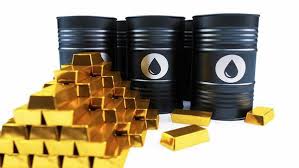Government last year announced a new policy dubbed Gold for Oil (G4O) to help deal with the frequent adjustment in fuel prices and stabilize the depreciation of the local currency.
The Programme is an initiative of the government to use the existing Bank of Ghana (BoG) Domestic Gold Purchase (DGP) Programme to support the import of petroleum products into Ghana.
According to the government’s G40 Programme Framework dated February 3, 2023, the prime objective of the programme is to use additional foreign exchange resources from the BoG’s DGP programme to provide foreign currency for the importation of petroleum products for the country which currently stands at about $350 million per
month.
The government has begun the implementation of the G4O Programme where gold purchases under the BoG’s DGP Programme mainly through the Precious Minerals and Marketing Company (PMMC) and where required from aggregators and mining firms is used to purchase petroleum products.
This is intended to free up foreign exchange resources to meet petroleum imports of the country thereby reducing pressures on the Bank of Ghana’s foreign reserves and the banking sector emanating from the Bulk Import, Distribution and Export Companies
(BIDECs) request for foreign exchange.
The programme also aims to procure petroleum products at very competitive prices through Government-to-Government (G2G) arrangements. The programme will ensure that the cost of importing the products from international oil traders will always be comparatively lower.
The consequent reduction in foreign exchange pressures, the reduction in premiums charged by international oil traders as well as efficiency gains from the value chain will translate to lower ex-pump prices in the country.
Per the document sighted bg DGN Online, the G4O, “Under the programme, all the ore gold produced and exported by companies with licensed small-scale concessions including community mines through the PMMC shall be purchased by the BoG. The Ministry of Lands and Natural Resources has issued directives towards the realisation of the programme.
“The purchased ore gold is used for the payment of oil supply to Ghana. Payment for oil supply is to be done in two channels: by way of barter trade or via broker channel.”
The move, announced by the Vice President Dr. Mahamudu Bawumia in the midst of the depreciation of the cedi against the US dollar and the rising cost of fuel prices, was explained as an intervention to help stabilise prices of fuel products, as well as reduce pressure on Ghana’s foreign exchange, as the direct gold barter would be the mode of paying for imported oil instead of depleting the foreign exchange reserve.
The Gold for Oil programme has since been implemented with the first oil consignment arriving last month.
Per the government’s G40 Programme Framework which explains the policy, payment for the oil supply is done in two channels; barter trade or via forex obtained from selling gold to a broker.
Under the Barter Channel, suppliers willing to take gold in direct exchange for petroleum products will be provided with the equivalent volume of gold by the Bank of Ghana (BoG).
“Both the Bank and the International Oil Trading Companies (IOTCs) are required to open Gold Metal Accounts in a mutually agreed gold refinery for the purpose of gold transfer,” the framework reads.
“BoG accumulates refined gold in its metal account at a refinery nominated by a supplier to fund petroleum product shipments. BoG transfers equivalent amount of gold based on petroleum products supply invoice from its metal account to a supplier’s metal account on receipt of Quality Certificate (QC) of the product supplied and final invoice from Bulk Oil Storage and Transport Company (BOST).
Find copy of the document attached below
By Vincent Kubi


